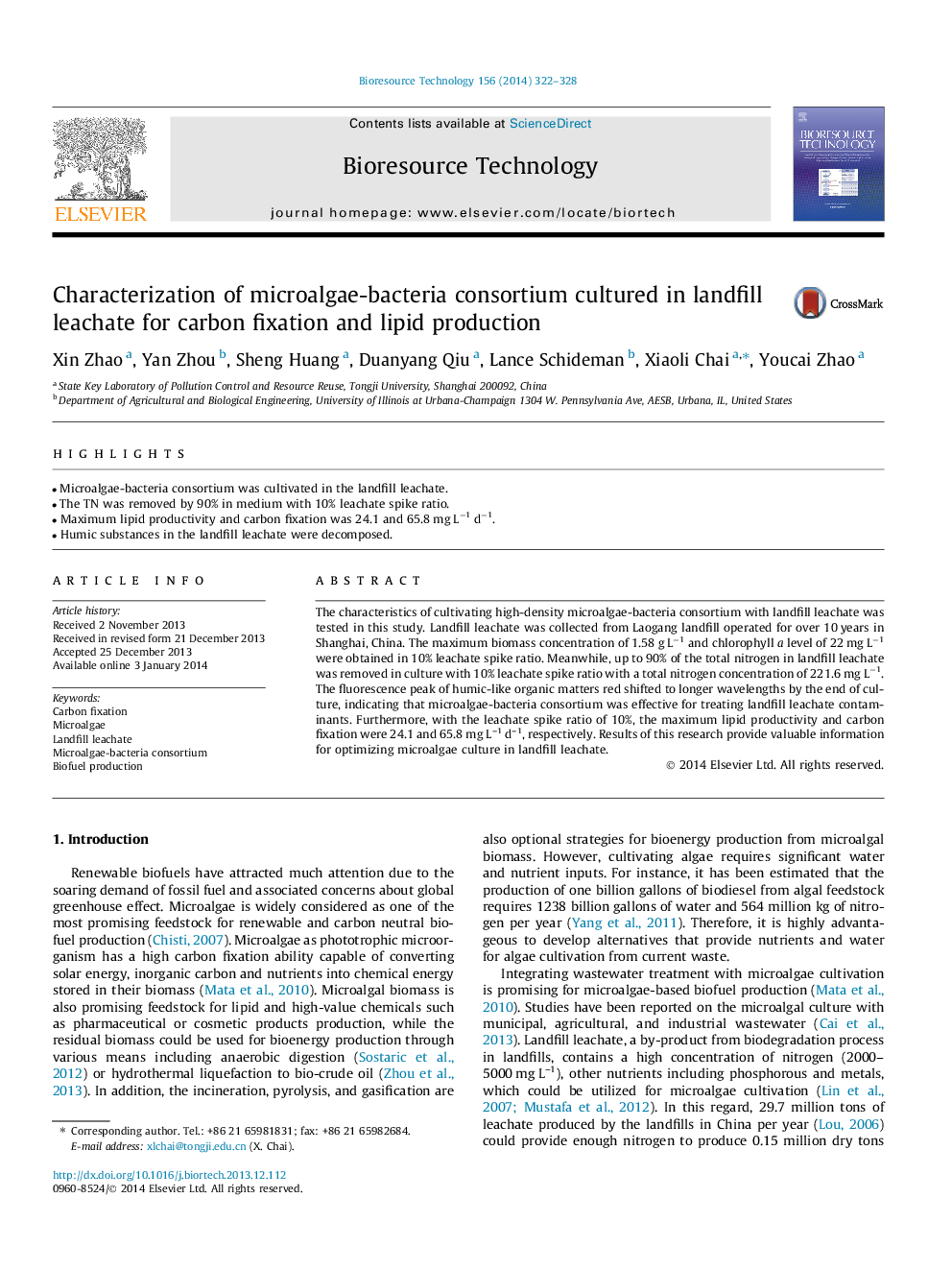| Article ID | Journal | Published Year | Pages | File Type |
|---|---|---|---|---|
| 7078925 | Bioresource Technology | 2014 | 7 Pages |
Abstract
The characteristics of cultivating high-density microalgae-bacteria consortium with landfill leachate was tested in this study. Landfill leachate was collected from Laogang landfill operated for over 10 years in Shanghai, China. The maximum biomass concentration of 1.58 g Lâ1 and chlorophyll a level of 22 mg Lâ1 were obtained in 10% leachate spike ratio. Meanwhile, up to 90% of the total nitrogen in landfill leachate was removed in culture with 10% leachate spike ratio with a total nitrogen concentration of 221.6 mg Lâ1. The fluorescence peak of humic-like organic matters red shifted to longer wavelengths by the end of culture, indicating that microalgae-bacteria consortium was effective for treating landfill leachate contaminants. Furthermore, with the leachate spike ratio of 10%, the maximum lipid productivity and carbon fixation were 24.1 and 65.8 mg L-1 d-1, respectively. Results of this research provide valuable information for optimizing microalgae culture in landfill leachate.
Related Topics
Physical Sciences and Engineering
Chemical Engineering
Process Chemistry and Technology
Authors
Xin Zhao, Yan Zhou, Sheng Huang, Duanyang Qiu, Lance Schideman, Xiaoli Chai, Youcai Zhao,
